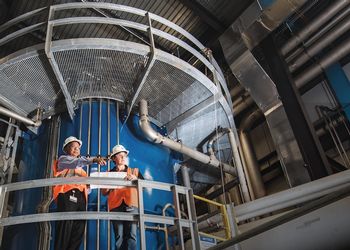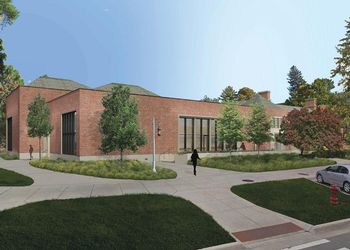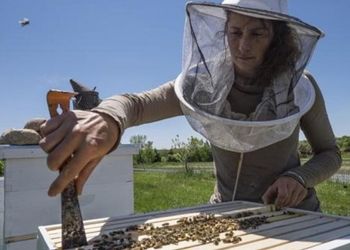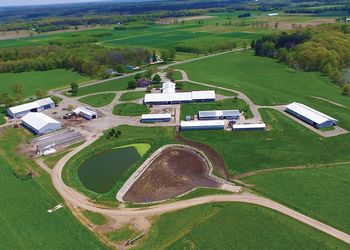A Star is Born
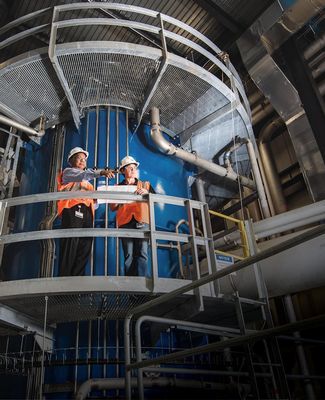
A Star is Born
Massive MSU ‘discovery machine’ to enable unprecedented breakthroughs
July 1, 2018Carl Sagan talked about it—but MSU is producing it. “Star stuff ,” or subatomic particles called rare isotopes. Exploding stars spit rare isotopes out around the clock—but making them on Earth is no easy feat.
That’s where MSU’s Facility for Rare Iso-tope Beams (FRIB) will come in. FRIB will be the world’s most-powerful rare isotope beams facility when it becomes fully operational in 2022.
It’s been referred to as a “discovery machine.” Experts believe it will be capable of producing 1,000 new rare isotopes for the ?rst time ever on Earth.
FRIB is expected to more than double the research opportunities in such ?elds as nu-clear physics, nuclear medicine, and home-land security.
Advances are also expected in astrophysics, plant biology, clean-energy production, and advanced radio-frequency systems.
Here are a few of FRIB’s recent milestones:
- Completed substantial civil construction
- Began installing accelerator components
- Produced liquid helium, vital to the facility’s cooling operations, onsite.
The Office for Nuclear Physics in the U.S. Department of Energy’s Office of Science, MSU, and the state of Michigan are funding the $730 million laboratory; $97 million of federal funding will arrive this year.
Thomas Glasmacher, FRIB’s director, said the facility is a coup for MSU because it’s the ?rst of its kind awarded to a U.S. university.
U.S. News & World Report rankings place MSU as the No. 1 nuclear physics graduate program in the country.
MSU is known as a world-class institution training the next generation of accelerator scientists and engineers.
Presently, FRIB employs 550 faculty and staff, and 270 students.
The laboratory counts 1,400 potential scientists worldwide who are looking forward to opening new nuclear territory.
Learn more: https://frib.msu.edu/


